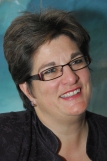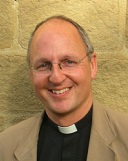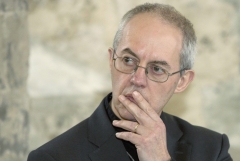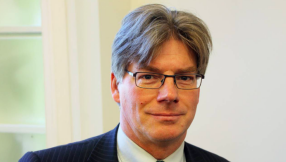
The Church of England begins its long process this week on how to avoid schism and reach "good disagreement" over the issue of homosexuality and same-sex marriage. At the same time, leading conservative evangelicals recommended Gafcon, whose leaders met recently in London, as a way forward for Anglicans who wished to remain true to biblical teaching.
In the first of a series of facilitated "conversations" taking place in the South West, church members and senior clergy are struggling to find a way to "bless and affirm" gay people and their relationships while remaining "united".
They are discussing whether it is even possible to maintain the Church's traditional teaching that marriage is always between a man and a woman while at the same time not be "written off" by culture in the West. The alternative, to follow the secular lead and endorse gay marriage, would be to "totally alienate" the majority of the Anglican Communion.
Western provinces do not wish to bring about a split in the worldwide Anglican Communion, and thereby a weakening of its international influence, at a time of unprecedented persecution of Christians especially in parts of the Global South and Middle East.
The "Shared Conversations on sexuality, Scripture and mission" began this week with 60 people chosen by the bishops from the Dioceses of Truro, Exeter, Bristol and Gloucester.
Andrew Symes, writing for the orthodox website Anglican Mainstream said: "Please pray for those taking part in the conversations who wish to speak with an orthodox voice. Pray for the courage and perseverance that comes from knowing their security is in God alone. Pray they would have the opportunity to speak clearly and the wisdom to know whether or not to take communion with the other participants at the end of their time together."
He pointed to Gafcon as a possible alternative way forward for orthodox Anglicans. Referring to the "stark choice" between staying in the CofE with "good disagreement", and leaving, presumably to resign Anglican orders and attend a congregation of another denomination, Symes says: "There is of course another option in which it will be possible to remain Anglican while not being part of a CofE which has abandoned its historic teaching." He then links through to Gafcon.

Bishop of Lewes Richard Jackson, a member of the Church of England Evangelical Council, has said in a podcast that the Bible teaches that "sexual immorality" among Christians is serious but questions whether this might come from their own cultural background rather than be a universally applicable Gospel issue.
Conservatives increasingly fear that traditionalist bishops have backed off in the face of preserving unity and protecting the Church from hostile attack.
Rev Peter Ould, a CofE priest and who is part of the "living out" group that believes it is possible to live according to Bible teaching while acknowledging same-sex attraction, told Christian Today: "The Shared Conversations are an historic opportunity in the Church of England to capture the breadth of theological interpretations and personal experiences around the area of human sexuality.
"As an exercise in listening and sharing they are undoubtedly a useful expenditure of time and resources, but beyond that benefit it's hard to see where the Church of England goes afterwards. It is likely that the conversations will reveal in greater detail the disparity in theological approaches between those on the conservative and liberal ends of the spectrum, and that ultimately will drive us back to the more deep rooted divisions that divide us, namely how we ultimately decide what is true."
Colin Coward of the gay lobby group Changing Attitude said: "I really hope that each of the conversations results in a really good exchange of understanding between people who are pro-gay and those who find the full inclusion of gay people more difficult. I feel optimistic about the quality of the conversations. However I think it is going to be difficult in such a short space of time for a meeting of minds to occur. I don't think the conversations are intended in themselves to result in proposals for change." He said he hoped the concept of "good disagreement" meant there would eventually be "positive changes" to enhance the status of LGBTI people in the Church.
In its report published in November 2013, the House of Bishops Working Group on Human Sexuality recommended: "The subject of sexuality, with its history of deeply entrenched views, would be best addressed by facilitated conversations or a similar process to which the Church of England needs to commit itself at national and diocesan level."
On its website the conservative evangelical group Reform, which withdrew from the conversations, says: "The majority view has prevailed and 'good disagreement' rather than 'seeking the truth' is the goal."
Reform says that if good disagreement is both the process and the objective then it cannot advise our members to take part. "To do so would be to ask them to be party to overturning the way Christians have interpreted Scripture for two thousand years and rejecting the views of the vast majority of the Anglican Communion and other Christians in the world today. To do so would be divisive."


















